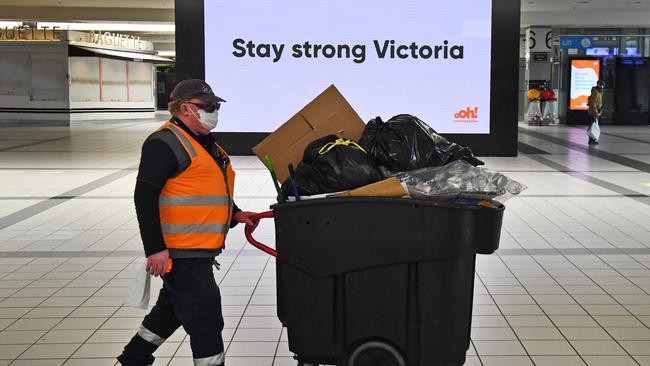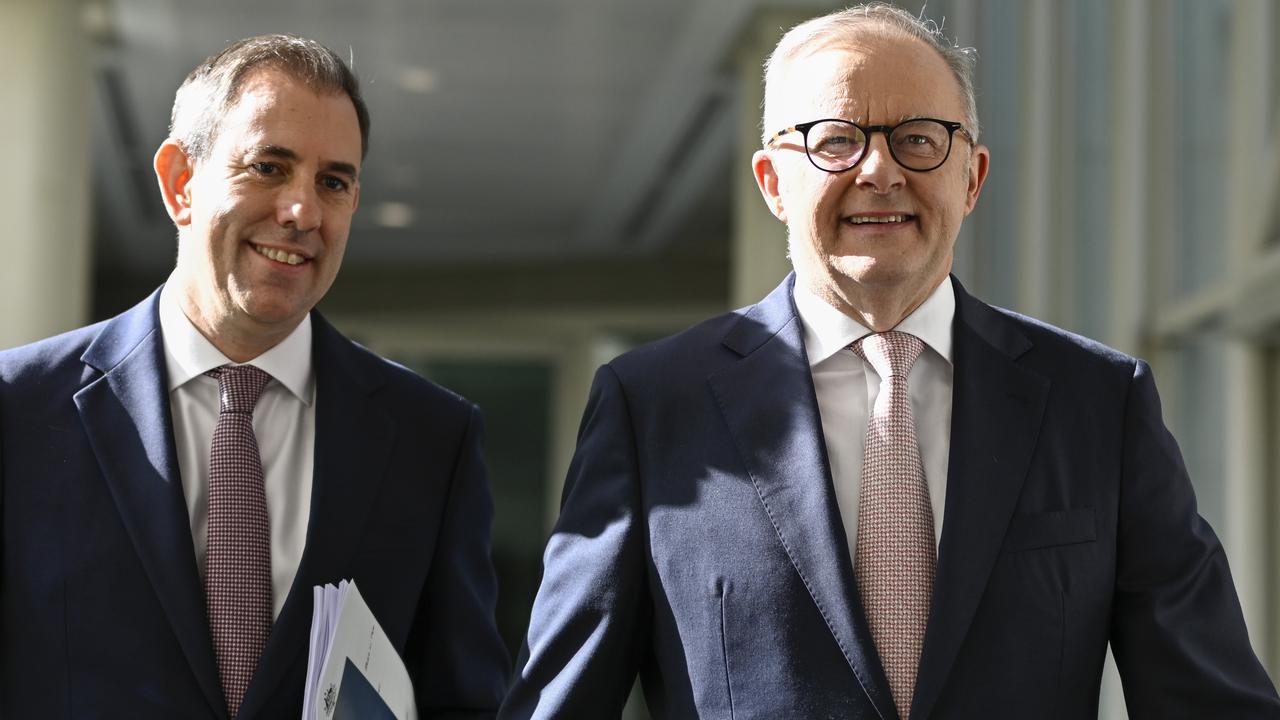Coronavirus: Welfare lifeline ‘risking the recovery’
The ‘lifeline’ of emergency income support provided during COVID risks undermining jobs recovery, Scott Morrison says.

The emergency income support provided through the COVID-19 recession risks undermining the jobs recovery, Scott Morrison has warned, as business groups said employers were struggling to fill vacancies despite unemployment at an almost 20-year high.
The Prime Minister on Tuesday confirmed the JobSeeker supplement would be extended for a further three months to the end of March at, but reduced from $250 a fortnight to $150 a fortnight, at a cost to taxpayers of $3.2bn.
“We know that employers are looking for people to come back, and we need to ensure that we have the right settings in place to support that,” Mr Morrison said.
“We cannot allow the lifeline that has been extended to now hold Australia back as we move into the next phases of recovery.
“We are getting a lot of feedback from around the country, and particularly in regional areas, about employers that are just trying to get people to fill jobs.”
Job seekers would continue to be able to earn up to $300 a fortnight without the social security payment being reduced. And the relief from the partner income test means those without jobs will still be able to access JobSeeker even if their partner earns more than $80,000 a year.
Business groups backed the decision to extend the supplement, but also flagged the importance of striking a balance between a sufficient safety net and not creating a disincentive to work.
Council of Small Business Organisations Australia chief executive Peter Strong said small businesses were telling him there were “lots of jobs they can’t fill”.
He said firms in regional areas such as Broken Hill and northern NSW, in particular, were struggling to find workers.
He said it was a “good” decision to extend the JobSeeker supplement at a reduced rate.
As Mr Morrison left open the possibility of extending the JobSeeker supplement beyond March, or potentially setting it at a permanently higher level — saying “we haven’t made a final decision” — Mr Strong said the small business sector would be prepared to support the temporary $150 increase being made permanent, saying it was “about right”.
He said higher welfare support — including the JobKeeper wage subsidy scheme — was “part” of the reason why employers were struggling to find workers, but noted even at a higher level, the JobSeeker payment was “still not a lot of money”, particularly for those who found themselves unemployed for the first time.
“If you are paying off a mortgage or, indeed, paying rent you are going to need more than that,” Mr Strong said.
There were more than 1.5 million people on unemployment benefits as at the end of October — well above the 886,000 receiving benefits before the COVID-19 crisis — according to the Department of Social Services.
Business Council of Australia chief executive Jennifer Westacott said the decision to extend JobSeeker was “a relief”.
But she said the temporary extension was “no solution”, adding: “We need a permanent solution here, a permanent increase for this allowance.”
Ai Group chief executive Innes Willox also flagged employers were having difficulty finding workers, notably in blue-collar service industries and for part-time roles, despite elevated levels of unemployment.
Mr Willox said it was a “sensible” decision to extend the JobSeeker supplement at a reduced level. He said whether it needed to be lifted permanently was “certainly worthy of examination”.




To join the conversation, please log in. Don't have an account? Register
Join the conversation, you are commenting as Logout